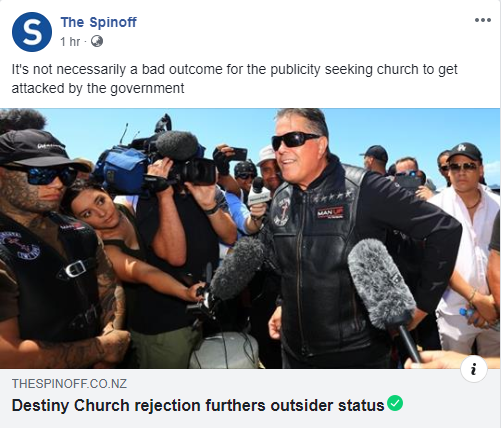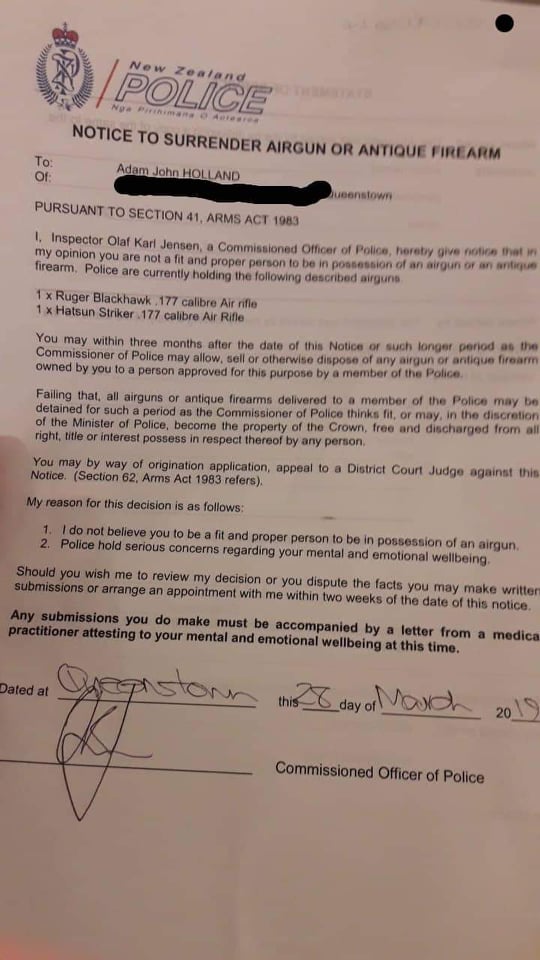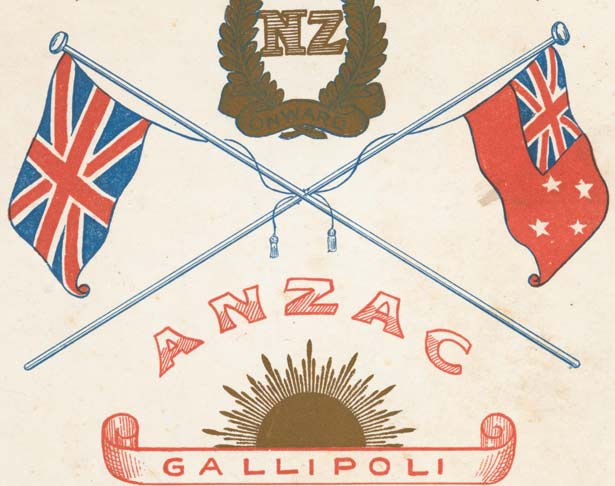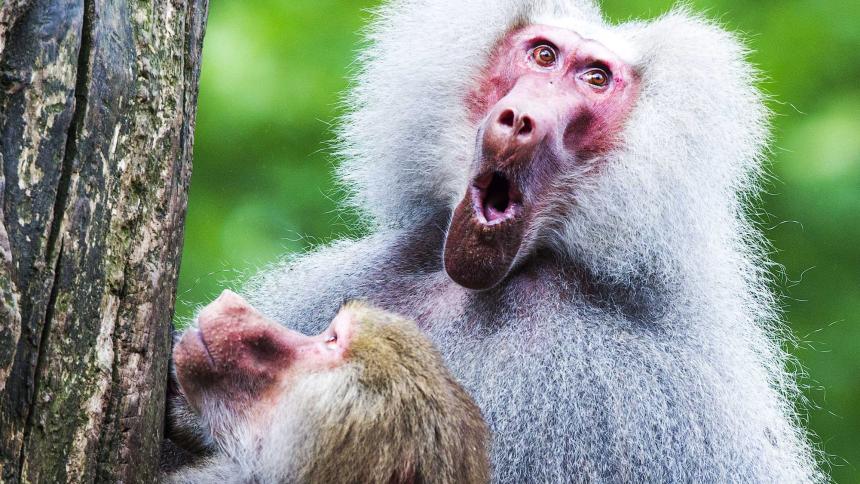In the Greco-Roman world, tyranny was defined as a form of government in which the rulers were unrestrained by laws. If the rulers are unrestrained by laws, then they are capable of inflicting any amount of cruelty upon the people, without there being any obvious way to stop them. This is widely agreed to be a terrible and evil form of government. This essay asks: is New Zealand now a tyranny?
One of the clearest examples of a tyranny is the presence of arbitrary and seemingly random punishments. New Zealand man Philip Arps is facing 14 years imprisonment for sharing a video of the Christchurch mosque shootings last month, on the grounds that the video was “objectionable content”. This is an incredible potential punishment if one consider the seven years imprisonment that Myron Robert Alf Felise got earlier this year for punching teenager Eli Holtz to death.
If New Zealand would bring in a 14-year maximum sentence for common assault or petty theft, it would be an obvious case of tyrannical overreach. So how can it be possible for them to introduce equally as severe a punishment for an action that did not harm anyone? It seems especially bizarre if one considers that New Zealanders are sharing and viewing videos of murderous terror attacks every day, but none of these are likewise criminalised.
A second example of tyrannical behaviour is the numerous laws and actions carried out by the New Zealand Government without the consent of the people, or even in cases when the people had explicitly withdrawn their consent. A current and ongoing example of these is the campaign of harassment currently being conducted by the New Zealand Police against anyone thought to be right-wing.
There are several anecdotal reports on social media about people having Police officers come to their house, often without warrants, in order to intimidate them and to gather intelligence (and one hilarious recording of such by New Zealand alt-media legend Vinny Eastwood). According to these reports, Police officers are demanding information about other right-wing people, and demanding to know if people are racists or if they supported Branton Tarrant.
One of the worst examples was what happened to Adam Holland in Queenstown (see image at top of article). Holland had two airguns and a crossbow removed from his possession on the grounds that Inspector Olaf Jensen had personally decreed Holland was “not a fit and proper person to be in possession” of such, and that “Police hold serious concerns regarding [Holland’s] mental and emotional wellbeing”.
Police officers have zero psychological education to justify any serious concern about anyone else’s wellbeing, and their whimsy is nowhere near a sufficient basis to remove possessions from a private citizen who has not used them in commission of a crime. What sort of country strips citizens of possessions on the basis of one Police officer’s judgment? How long until they take machetes and kitchen knives away?
Holland’s experience is just a further example of a process that started before the Sixth Labour Government. The Fifth National Government was happy to sell national assets, despite a referendum that explicitly declared the public unwillingness to do so, and all recent Governments have refused to acknowledge the clear public desire for cannabis law reform.
If a clear and direct expression of the public does not constrain our rulers, then what does?
A third example is the ongoing free speech violations. Justice Minister Andrew Little currently has a giant warboner over the possibility of introducing so-called “hate speech” laws, in which criticism of certain power structures becomes a criminal offence. As has been seen in Austria, where a woman was given a criminal conviction for saying that Muhammad was a pedophile, hate speech laws soon lead to the criminalisation of dissent.
The Government hasn’t started stripping our rights to speak away quite yet, because they are currently in the process of sounding out how much they think they can get away with, but the process of using propaganda to soften public resistance to such tyrannical laws is in full swing. The mainstream media is busy acclimatising the public to no longer being allowed to speak freely.
The really frightening thing is that such laws directly violate Section 14 of the New Zealand Bill of Rights Act, which guarantee New Zealanders the right to impart opinions of any kind in any form. If the Government is not bound by the New Zealand Bill of Rights Act when taking our rights to speak away, what are they bound by? And if they are bound by nothing, as appears to be the case, then how are they any different to the literal definition of tyranny?

A fourth example is given in the image above. The Spinoff regularly runs articles attacking the enemies of the Government and making apologies for unpopular Government actions (although rarely are they so blatant as in the example above). The worrying thing is, as they admit on their company page, The Spinoff “works with NZ on Air and Creative New Zealand to fund our work” – in other words, they take Government cash to produce propaganda.
When the Government works hand-in-hand with the free press to create propaganda pieces, you don’t have a free press. In fact, the need for an authoritarian government to totally control the narrative was even mentioned by Josef Goebbels in his Principles of Propaganda. So the Government funding a media enterprise that pretends to be independent, but which in reality attacks enemies of the Government and propagandises for Government policies, is something fully in line with tyrannical Nazi principles.
The only way New Zealand can get out of this is to come together as individuals, ignoring the government, and to decide on a set of our rights that are inviolable and which must be respected by anyone who wishes to rule us. A starting point could be the essay published here expounding a seven-fold conception of inherent human rights. If all Kiwis agreed that every other Kiwi possessed such rights, we would be free of tyrannical measures.
If this doesn’t work then we’re left with anarcho-homicidalism.
*
If you enjoyed reading this essay, you can get a compilation of the Best VJMP Essays and Articles of 2018 from Amazon for Kindle or Amazon for CreateSpace (for international readers), or TradeMe (for Kiwis). A compilation of the Best VJMP Essays and Articles of 2017 is also available.




